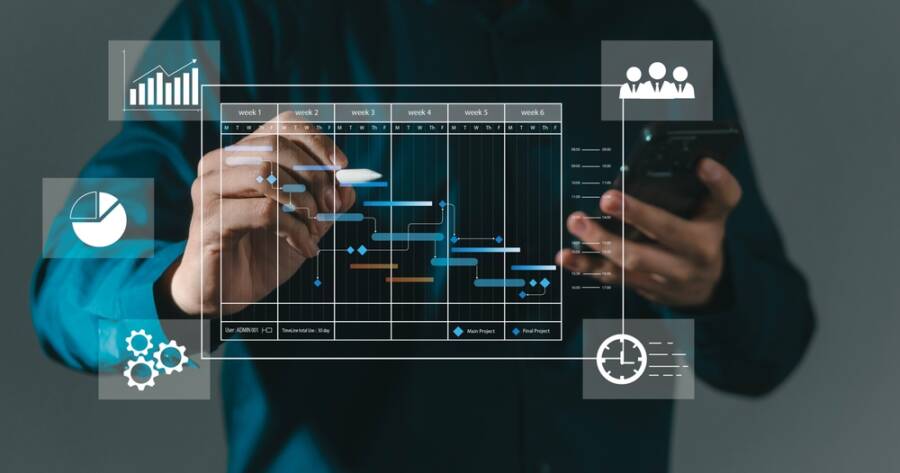Project management is undergoing a powerful transformation as digital innovation reshapes how teams plan, collaborate, and deliver results. Advanced tools, automation, and data-driven insights are streamlining workflows while enabling project managers to focus on strategy and leadership. As organizations embrace remote work, AI integration, and cloud-based platforms, the expectations for efficiency and adaptability continue to rise. Navigating modern landscapes requires both technological fluency and strong interpersonal skills to guide teams through constant change.
Understanding Project Management in the Digital Age
In the rapidly evolving landscape of project management, digital tools and technologies are reshaping how projects are planned, executed, and monitored. The integration of artificial intelligence (AI) is a significant trend, with AI enhancing project delivery speed, maintaining budgetary discipline, and elevating quality standards.
Research shows that 54% of respondents are using generative AI in 16 to 50% of their projects, while 20% use it in more than half of their projects, indicating widespread adoption. This shift allows project managers to focus on high-level concerns as mundane tasks become automated, improving overall project efficiency.
Essential Project Management Tools
Project management tools are crucial in the digital age for enhancing efficiency, versatility, and visibility in managing projects. These tools help streamline processes, centralize work, and save time, which is essential for companies to thrive in today’s fast-paced environment.
A detailed comparison of the top project management tools, such as Wrike, Asana, and Monday.com, highlights their unique features, pros and cons, and pricing plans to assist businesses in choosing a tool that aligns with their specific needs and industry requirements.
Trends in Project Management
The rise of remote and hybrid work styles is transforming project management strategies, emphasizing the need for optimized communication systems and maintaining team cohesion across distributed teams. This shift has led to the adoption of cloud-based project management software and video conferencing tools, enabling project managers to effectively manage teams across different time zones and cultures and adapt to new environments.
Additionally, hybrid methodologies that combine elements from traditional and modern approaches, like Waterfall and Agile, are becoming increasingly popular, offering the adaptability needed to manage diverse project requirements.
Key Tactics for Success
To succeed in the digital age, project managers must develop skills in communication, emotional intelligence, and collaborative tools to effectively manage remote teams. Emotional intelligence is increasingly important, with 85% of project managers reporting increased use of these skills due to the need for strong interpersonal skills in technologically advanced and remote work environments.
Furthermore, the demand for tech skills, particularly in AI, cloud computing, and cybersecurity, is rising. Project managers are encouraged to build these skills to manage digital technologies effectively and achieve project success.
Challenges and Solutions
Despite the benefits, implementing digital project management comes with challenges, including resistance to change, the need for training and education, data protection and security concerns, and integration into existing systems. Companies must embrace change, invest in training and technology, and ensure integration with existing IT infrastructures to overcome these challenges.
Additionally, the environmental and social impact of projects is gaining importance, with organizations and regulators focusing on sustainability. Project managers should integrate sustainability practices to meet regulatory demands and appeal to eco-conscious consumers.
The Growing Importance of Data-Driven Decision-Making
Data analytics has become a core pillar of modern project management, offering visibility into performance, risk, and resource allocation like never before. Project managers now rely on dashboards, forecasting tools, and real-time metrics to anticipate obstacles and adjust strategies early.
This data-centered approach enhances accuracy, improves stakeholder communication, and increases project predictability. By interpreting trends and leveraging insights from past projects, teams can make more informed decisions and deliver stronger outcomes. As digital tools continue to evolve, data literacy becomes an essential skill for every project leader.
Shaping the Future of Digital Project Management
The digital age has created new opportunities for project managers to enhance productivity, strengthen communication, and deliver exceptional outcomes. With AI automating routine tasks and collaborative tools supporting remote and hybrid teams, leaders can devote more energy to strategic decision-making and long-term planning. Success now relies on mastering a blend of technical skills, emotional intelligence, and adaptability—qualities that help teams stay aligned no matter where they work.
As trends continue to evolve, organizations must invest in training, modern platforms, and sustainable practices to remain competitive. Overcoming challenges such as resistance to change, cybersecurity concerns, and workflow integration requires proactive planning and a commitment to continuous improvement. By embracing innovation and prioritizing people-centered leadership, project managers can build resilient teams and deliver meaningful results in an increasingly digital world.

